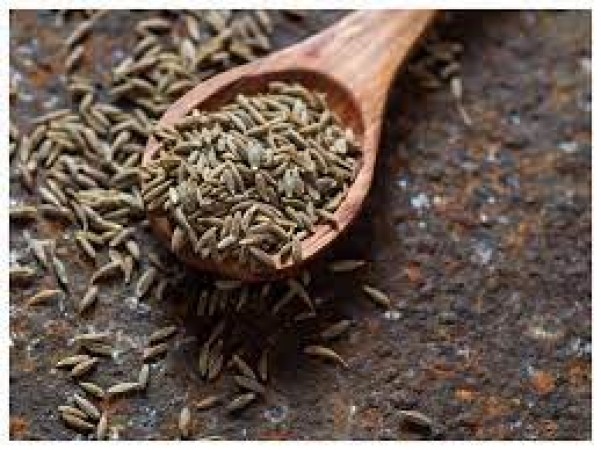
Cumin, a popular spice in many cuisines, is known for its distinctive flavor and aroma. While it can enhance the taste of your dishes, consuming cumin in excessive amounts may have unintended health consequences. In this article, we explore the potential dangers of overindulging in cumin and its impact on your well-being.
Cumin, scientifically known as Cuminum cyminum, is a flowering plant in the Apiaceae family. The seeds of this plant are dried and used as a spice in various dishes, particularly in Indian, Middle Eastern, and Mexican cuisines. Cumin is renowned for its earthy, nutty flavor and is a staple in many kitchens worldwide.
Cumin has a fascinating history as a culinary spice, dating back thousands of years. It has been used for its flavor and medicinal properties in different cultures, including ancient Egypt and Rome.
The distinctive taste of cumin can be attributed to its chemical composition. It contains various aromatic compounds, including cuminaldehyde, which gives it its earthy and slightly spicy flavor.
Before delving into the risks associated with excessive cumin consumption, it's essential to acknowledge the potential health benefits of moderate cumin intake. Cumin is rich in vitamins, minerals, and antioxidants, and it is believed to:
Cumin is known for its digestive properties. It may help improve digestion by stimulating the secretion of digestive enzymes, making it a common remedy for indigestion and bloating.
Cumin is not just a flavorful spice; it's also a source of vitamins and minerals that support the immune system. These nutrients may help the body fight off infections and maintain overall health.
For individuals with diabetes or those looking to manage their blood sugar levels, cumin may offer some benefits. Some studies suggest that cumin can assist in regulating blood sugar levels, although it's not a replacement for medical treatment.
Cumin contains antioxidants, such as flavonoids, which can protect cells from damage caused by free radicals. These antioxidants play a role in maintaining overall health.
While cumin offers numerous health benefits when consumed in moderation, consuming it excessively may pose some risks. It's important to be aware of these potential dangers:
Consuming excessive amounts of cumin can lead to gastrointestinal discomfort. Symptoms may include bloating, indigestion, and gas. It's crucial to use cumin in moderation to avoid these issues.
Cumin contains certain compounds that may put stress on the liver and kidneys if consumed in large quantities. While these organs are equipped to process a variety of substances, overindulgence in cumin can overwhelm them.
In some cases, individuals may experience skin reactions due to overconsumption of cumin. These reactions may manifest as rashes or other allergic responses. If you notice such symptoms, it's advisable to reduce your cumin intake.
Cumin is known to have mild anticoagulant properties. While this can be beneficial in some situations, overconsumption can potentially lead to issues with blood clotting, which could be problematic, especially for individuals on blood-thinning medications.
Cumin contains compounds known as phytates, which may hinder the absorption of dietary iron. This is an important consideration, as iron is essential for overall health, and a reduction in its absorption could lead to iron deficiency.
Excessive cumin consumption can potentially lead to a nutritional imbalance in your diet. It's important to maintain a varied diet to ensure you get all the essential nutrients your body needs.
To avoid the potential risks associated with excessive cumin consumption, it's crucial to use this spice in moderation. The recommended daily intake of cumin is approximately 2-4 grams, which is sufficient to enjoy its flavor and gain some health benefits without overdoing it.
Understanding the recommended daily intake of cumin is essential. It's generally advised to limit your daily consumption to 2-4 grams, which equates to about one to two teaspoons.
When cooking or preparing dishes, be mindful of the amount of cumin you use. Keeping track of your cumin intake in different meals can help you stay within the safe consumption range.
If you're a fan of cumin and want to continue using it in your culinary creations, consider these tips to ensure safe consumption:
Stick to recommended amounts in recipes when using cumin. Recipes often provide guidelines on the ideal quantity to achieve the desired flavor without going overboard.
Be conscious of how much cumin you use in your daily meals. Keeping track of your daily cumin consumption can help you maintain a healthy balance.
Exploring other spices and herbs can not only broaden your culinary horizons but also reduce your reliance on cumin. A diverse range of spices can provide different flavors and health benefits.
If you have concerns about your cumin consumption and its effects on your health, it's a good idea to consult a healthcare professional or a registered dietitian. They can provide personalized guidance based on your specific health and dietary needs.
Cumin, a beloved spice in various cuisines, can be a flavorful addition to your dishes while offering some health benefits. However, like many things in life, moderation is key. Excessive consumption of cumin can lead to various health risks, including gastrointestinal discomfort, potential strain on the liver and kidneys, skin reactions, blood clotting issues, and interference with iron absorption. To enjoy cumin safely, use it in recommended quantities and consider diversifying your spice choices in your cooking. Incorporating cumin safely into your diet involves understanding its recommended daily intake, being mindful of your meals, and exploring a wide range of spices. By following these guidelines, you can savor the earthy and aromatic flavors of cumin without compromising your health.
Silent Threat: Here's How Air Pollution Affects Human Health
How to Prevent Spine Diseases Caused by These 5 Mistakes, Act Now!